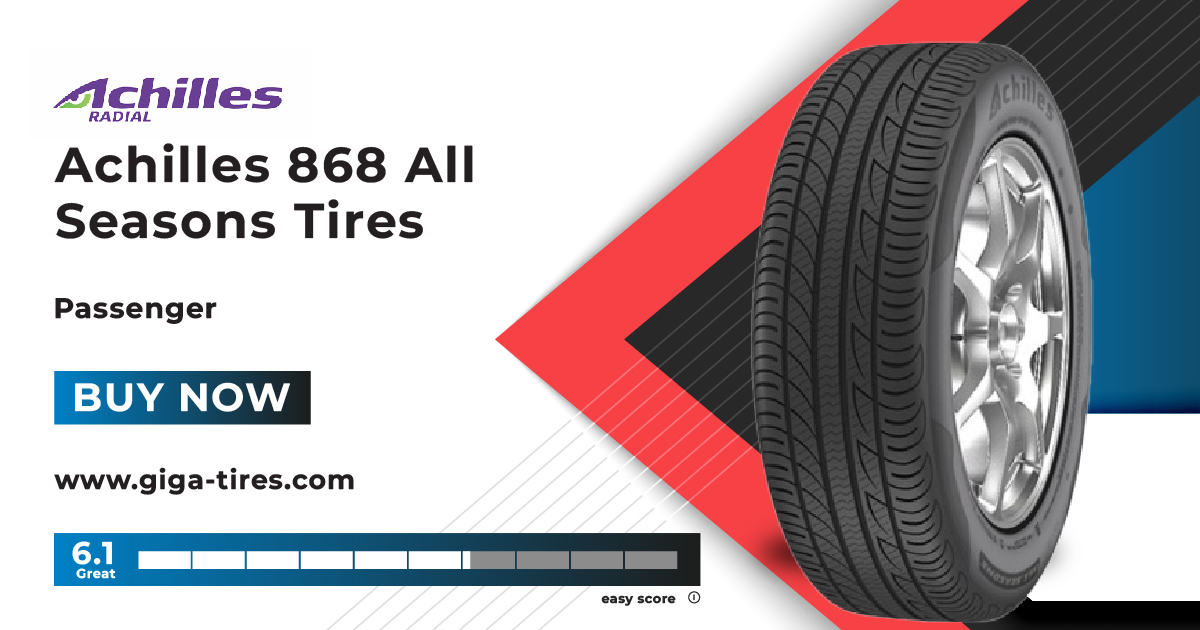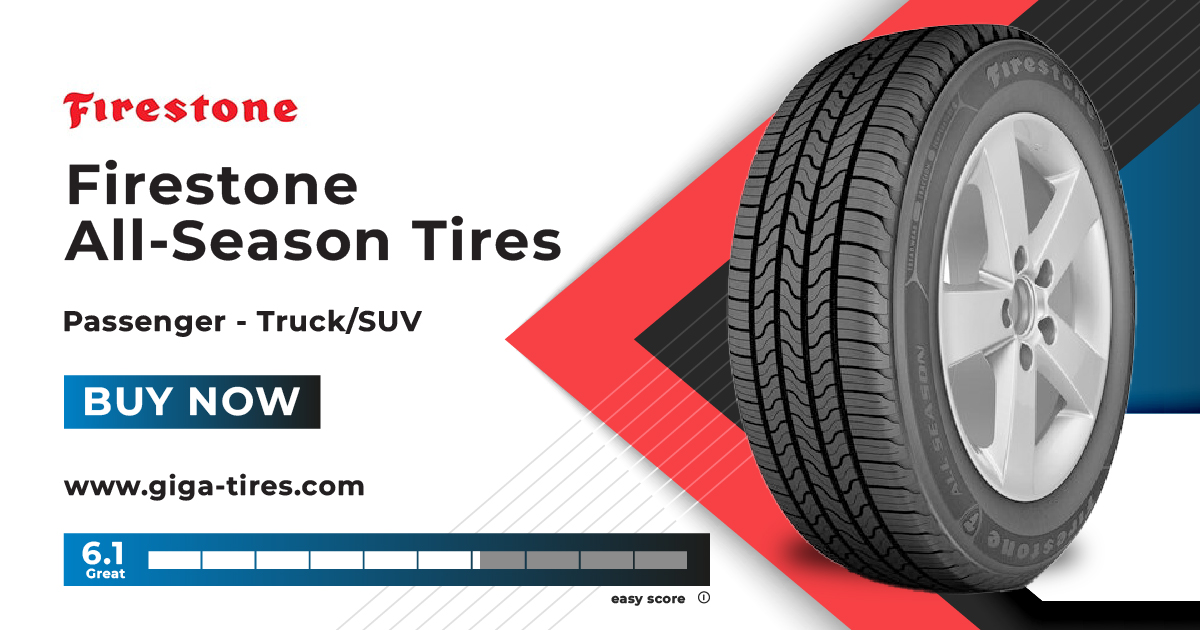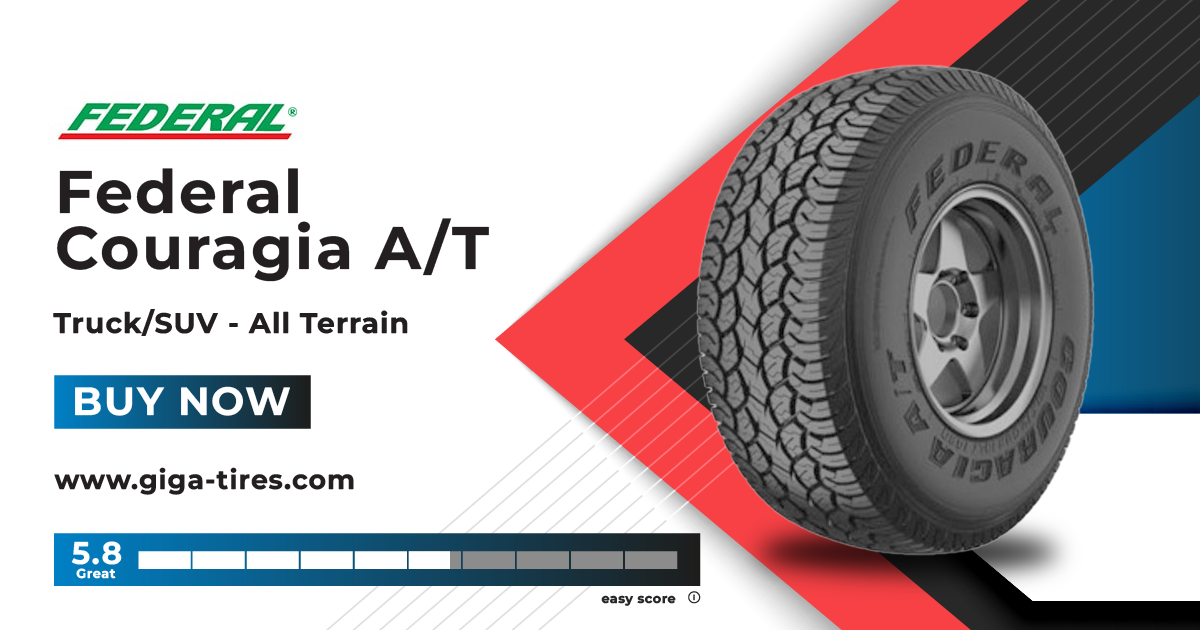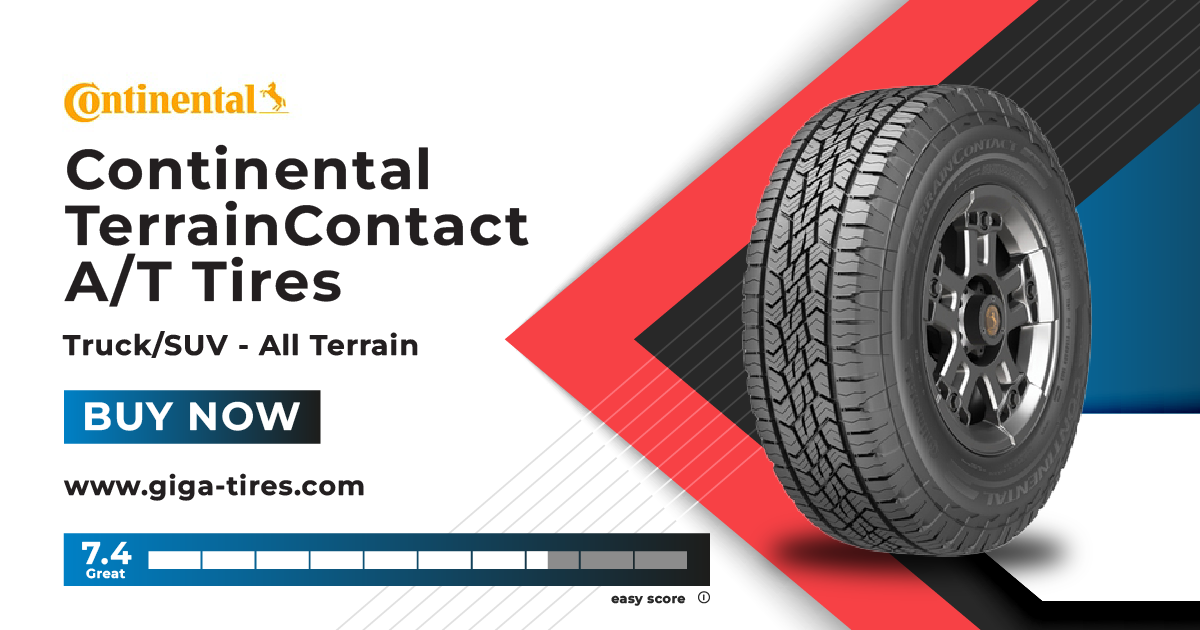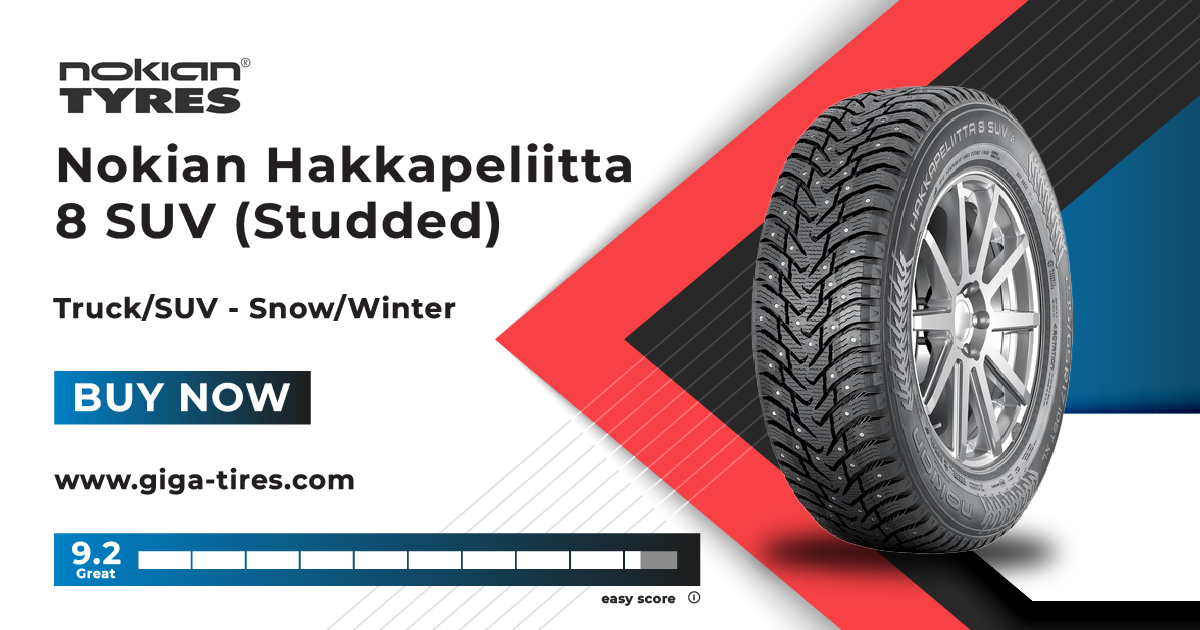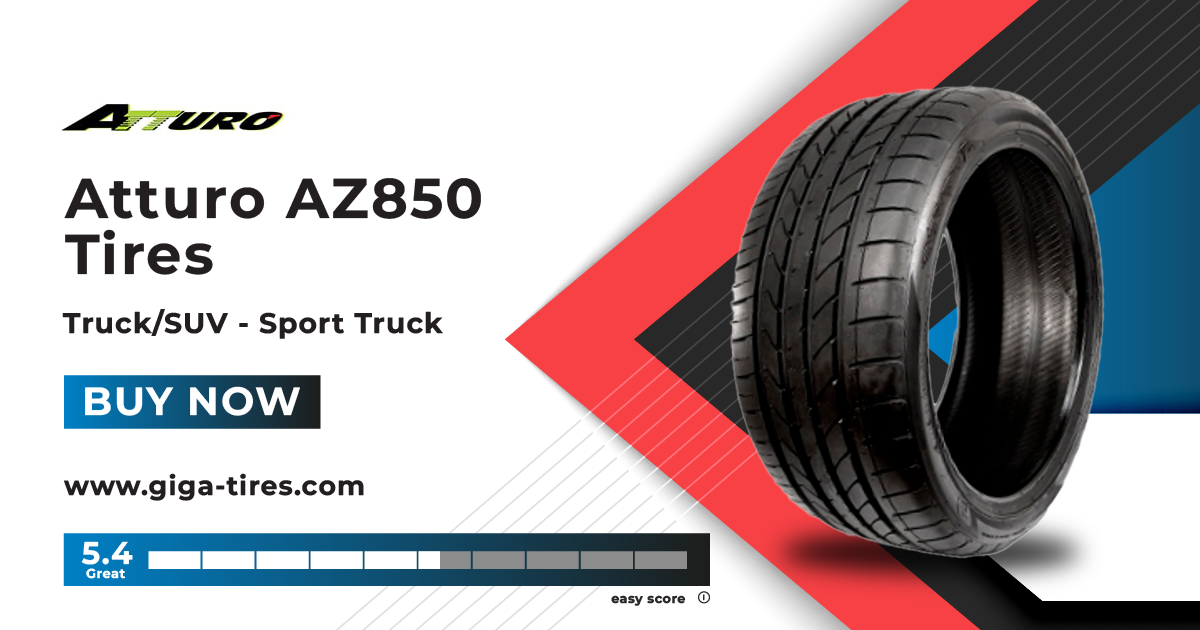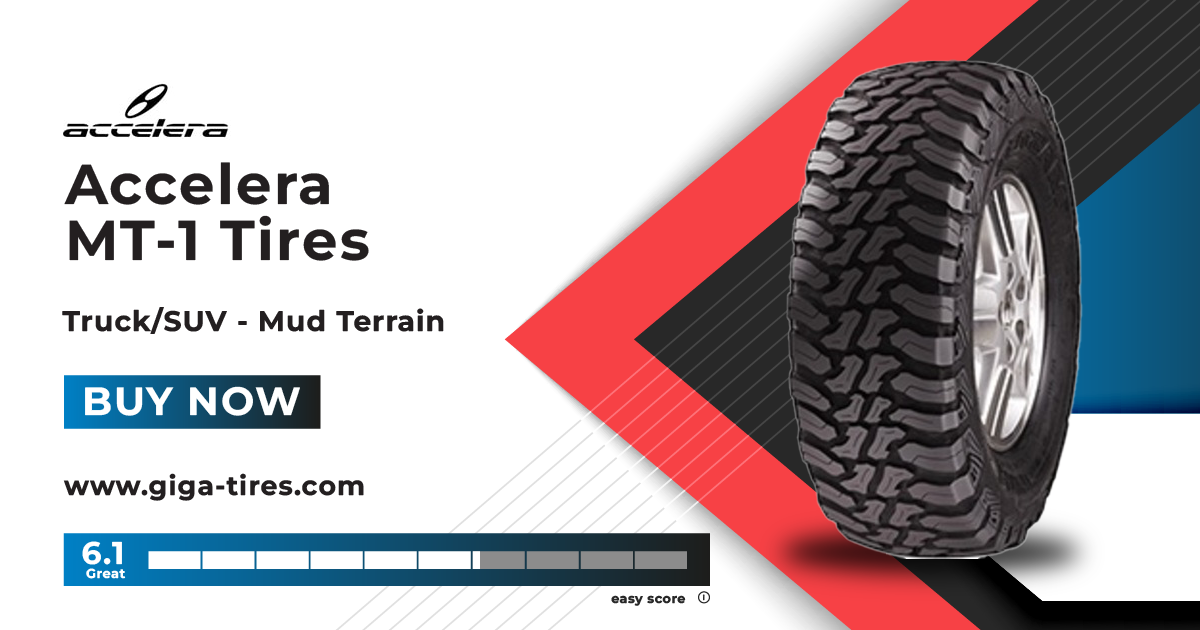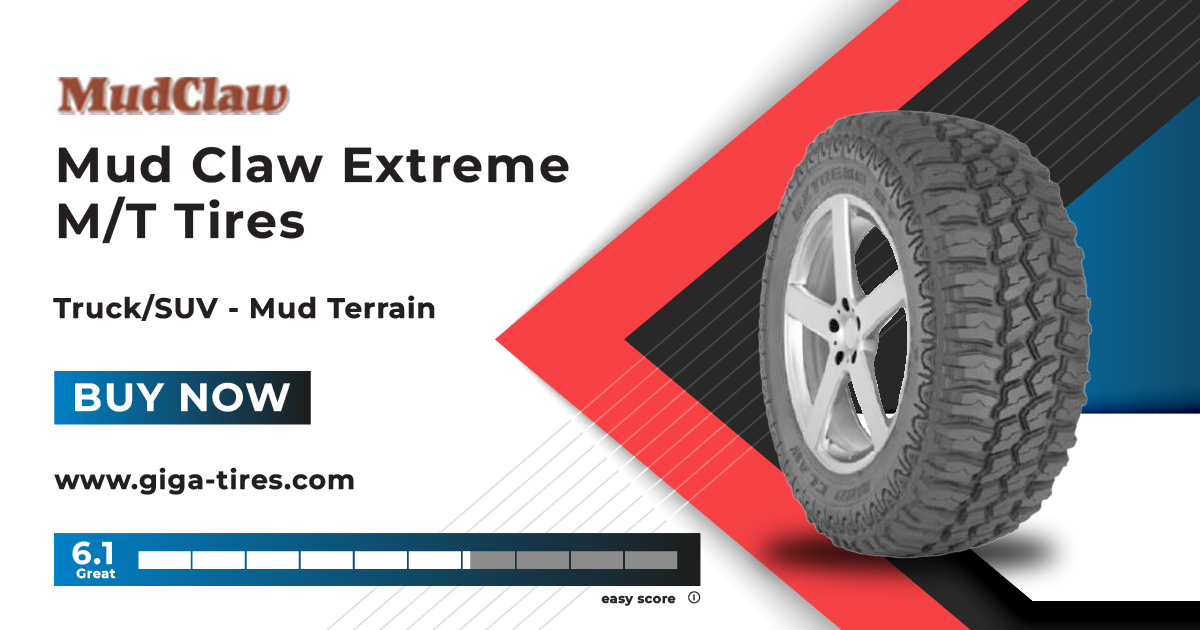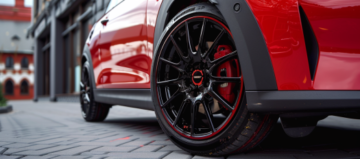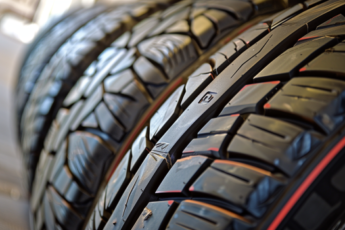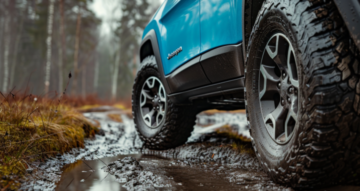Last Updated on 3 days
A Comprehensive Comparison of Car and Truck/SUV Tires: Which Is Right for You?
The number of brands, types, and styles of tires is enormous, and you might feel overwhelmed by the choices. Know that you are not alone. Many drivers face this issue when it comes to tire shopping, and the abundance of choices and options can be confusing. The right tire for your vehicle (and yourself as the driver) depends on many factors.
Of course, the size of your car, truck, or SUV tires is essential, but what about factors like the terrain you will be driving on or the weather you encounter? Safety is often a top concern for most drivers, so features like stability and grip must also be weighed out.
So, let’s break down the most common types of tires and explain what each element means to help you find the right choice for you, your family, and your vehicle.
Choosing Between Car and Truck/SUV Tires: A Comprehensive Comparison
Tires are the unsung heroes of the road, silently ensuring our vehicles perform at their best. But when selecting the right tires, the choices can be overwhelming. One of the fundamental decisions you’ll face is equipping your vehicle with car tires or truck/SUV tires. Each type has unique characteristics that cater to specific cars and driving conditions.
This comprehensive guide will explore the distinctions between car and truck/SUV tires. Whether you’re a sedan aficionado or an SUV enthusiast, understanding these differences will empower you to make a tire choice that aligns perfectly with your vehicle and driving preferences. Join us as we unravel the world of tires and help you find the ideal fit for your road adventures.
Here are some key points to consider when comparing car and truck/SUV tires:
Car Tires:
- Designed for Passenger Cars: Car tires are specifically engineered for use on passenger cars, such as sedans and hatchbacks.
- Ride Comfort: They prioritize a smooth and comfortable ride, offering low road noise and excellent handling for everyday driving.
- Fuel Efficiency: Car tires often maximize fuel efficiency, contributing to better gas mileage.
- Tread Patterns: The tread patterns of car tires are typically optimized for on-road performance in various weather conditions.
- Load Capacity: Car tires have lower load-carrying capacities compared to truck/SUV tires, as they are designed for lighter vehicles.
Truck/SUV Tires:
- Designed for Trucks and SUVs: Truck/SUV tires are built to meet the specific needs of Sport Utility Vehicles (SUVs) and trucks.
- Durability: They are engineered to handle heavier loads and provide more excellent durability, with reinforced sidewalls to support the weight of trucks and SUVs.
- Off-Road Capability: Many truck/SUV tires offer enhanced off-road traction and durability, making them suitable for rugged terrains.
- All-Season Versatility: Some truck/SUV tires are designed to perform well in various weather conditions, making them suitable for year-round use.
- Tread Design: Truck/SUV tires may have more aggressive tread patterns to handle off-road challenges and provide excellent traction.
- Load Ratings: These tires often have higher load ratings to support the weight of trucks and SUVs, including passengers and cargo.
Choosing the Right Tires:
- Consider Vehicle Type: Select tires based on your vehicle type. Car tires are ideal for passenger cars, while truck/SUV tires are designed for SUVs and trucks.
- Driving Needs: Assess your driving needs. If you frequently encounter off-road conditions or carry heavy loads, truck/SUV tires may be a better choice.
- Climate and Terrain: Consider your local environment and typical driving terrain. Some truck/SUV tires are better suited for specific weather conditions and terrains.
- Load Requirements: Ensure that the tires you choose meet or exceed your vehicle’s load-carrying requirements for safety and performance.
- Balancing Comfort and Utility: Your choice of tires should balance ride comfort and utility, aligning with your vehicle’s intended use.
- Regular Maintenance: Regardless of tire type, routine maintenance, including proper inflation and alignment, is essential for safety and longevity.
- Consult Experts: If you’re unsure which tires suit your vehicle, consider consulting with tire experts or your manufacturer for recommendations.
By considering these points and understanding the differences between car and truck/SUV tires, you can make an informed decision that optimizes your vehicle’s performance and safety.
Exploring Different Types of Tires: From All-Season to Mud Tires
Tires are the unsung heroes of our journeys, silently navigating us through a world of diverse terrains and weather conditions. While they all serve the fundamental purpose of keeping us rolling, not all tires are created equal. Whether cruising the city streets, braving snowy highways, or venturing off-road, a specific tire type is designed to enhance your driving experience.
This comprehensive guide will explore various tire options, from the versatile all-season tires to the rugged mud tires built for the most challenging trails. Each tire category has unique strengths and weaknesses, making them ideal for specific driving scenarios. Whether you seek year-round reliability, superior off-road performance, or specialized traction in winter wonderlands, our exploration of these tire types will equip you with the knowledge to choose the perfect set for your driving needs.
So, fasten your seatbelts as we embark on a tiring adventure, dissecting the pros and cons of all-season tires, all-terrain wonders, run-flat saviors, winter warriors, and mud conquerors. By the end of this journey, you’ll be better equipped to select the tires that match your vehicle, your driving habits, and the adventures that lie ahead.
1) All-Season Tires
As the name implies, all-season tires are designed to withstand driving conditions year-round. These hybrid tires can handle general driving conditions – from hot summer roads to cold winter ones.
The tread of all-season tires is constructed to provide stability and firm handling, even in light snow or rain. They are also made with a specially treated compound and rubber to ensure the tires stay flexible and grip the road in various temperatures.
The Achilles 868 All-Season Tire is an affordable option with long-lasting tread and wide grooves for water displacement to avoid hydroplaning on wet roads.
The Firestone All Season has many great tire reviews praising superior grip and handling on snow-covered and wet roads. This Firestone model also has an additional layer of rubber beneath the tread to provide a smoother, quieter ride.
All-Season Tires VS Summer Tires
All-season tires will offer a longer tread life than summer tires because they are slightly thicker to accommodate colder driving conditions. However, they are not as flexible as summer tires, designed for peak-performance driving during extreme heat. All-season tires are perfectly equipped for driving during the warm months but are better for more moderate conditions rather than revolutionary.
All-Season Tires VS Winter Tires
Generally, all-season tires are optimized to perform best in temperatures above 45°F. So, if you live in frigid winter climates, these will not be a suitable replacement for snow and winter tires. An all-season option is excellent if you only occasionally drive on icy or snowy roads.
If you expect to drive in more extreme temperatures and weather conditions routinely, an all-season tire will not be optimal for your driving safety. You should also check your state regulations, as some states require changing your tires due to safety precautions during the winter months.
Bottom Line
All-season tires are best for drivers who want the best of both worlds without purchasing multiple sets for every season. However, these tires are meant to be a jack-of-all-trades and are best for moderate driving conditions – rather than extreme weather.
All-season tires are a better choice if you live year-round in an area with moderate temperatures and weather patterns. Many brands also offer budget-friendly all-season models, making them affordable for many drivers.
2) All-Terrain Tires
An all-terrain tire is another combination version, this time for both on- and off-road driving. All-terrain models are only made for trucks and SUVs – and are not applicable for commuter vehicles like sedans or coupes.
These tire models are designed to provide superior stability on pavement and rocky or muddy trails, making them a popular choice for work vehicles and trucks/SUVs.
You can spot an all-terrain tire by its noticeably deep tread pattern and reinforced sidewalls, which improve durability and protect the tire from scratches and punctures.
The Federal Couragia A/T tire is a well-balanced, lower-priced option for excellent handling.
Continental has some of the highest all-terrain tire reviews, and their Terrain Contact A/T model line comes in multiple sizes to accommodate larger trucks and SUVs.
All-Terrain Tires VS All-Season Tires
All-terrain tires perform well in snow, rain, and ice, making them suitable for year-round driving. However, it is essential to note that they are not specially designed for extreme weather conditions and will not provide the same level of handling and stability during varying weather conditions as an all-season tire.
They are also thicker and more sturdy than all-season tires and are designed for vehicles with heavy load capabilities. One downside is that these tires are often loud and have a shorter tread life than all-season models – due to their open-tread patterns. An all-terrain tire is the best choice if you plan to do any off-roading occasionally.
Bottom Line
All-terrain tires are perfect for heavy-duty vehicles with a fair share of on- and off-road driving. The extra support and stability make these tires extremely durable, but they have a few drawbacks, including lower fuel economy than other models. Ultimately, this tire option is best for drivers who need their vehicle to endure off-road terrain and prefer tires that can withstand heavy loads.
3) Run-Flat Tires
Getting a flat tire is not just an inconvenience—it can be hazardous. A tire blowout on a busy highway or a twisting road can jeopardize your and your passengers’ lives. Run-flat tires are specially designed to resist blowouts and deflate slowly if the tire is punctured. Most run-flat tire models will still be safely drivable for up to 50 miles and allow speeds up to 50 mph.
Run-flat tires are specially reinforced with a sidewall construction that slows air loss and helps maintain pressure. These tires also contain a supporting complex rubber ring system structure inside, which helps to support the car’s weight as air seeps out.
Some run-flat tires are also designed with other model features for added benefits. Nokian Tyres offers a snow tire featuring run-flat technology in their Hakkapelitta 8 model. The Atturo AZ850 RFT is a run-flat model designed like a sports tire to provide excellent handling and grip, even at high speeds.
Vehicles with run-flat tires must only be used in cars with a Tire Pressure Monitor (TPM). While these are typically built into vehicles sold with run-flat tires, they must be installed if you purchase them aftermarket. The TPM helps monitor the internal tire pressure and alerts you if it depletes.
Run Flat Tires: Pros and Cons
Run-flat tires provide peace of mind to drivers worried about getting a flat or driving on less-than-desirable roads. Since the structure is reinforced, run-flat tires are more stable and durable than traditional models and provide temporary control when tire pressure is lost. That same reinforcement keeps the tire rolling after a pressure loss, making it stiffer and less smooth.
However, there are some downsides to these models.
Run-flat tires tend to have softer rubber tread to reduce the chances of a puncture, which means the track can wear down faster. Furthermore, they cannot protect against a blowout entirely and are more expensive than other models. However, the added stability, handling, and benefits of run-flat technology certainly make them a suitable choice for drivers if their vehicle is equipped with a TPMS system.
Bottom Line
A run-flat tire can be a great option if you fear getting a flat or aren’t comfortable changing your tires after a blowout. Drivers should note that run-flat is a tire design feature found on other models, such as all-season, all-terrain, or high-performance tires.
That means drivers can still choose the type of tire best for them while knowing what to do in case of tire pressure loss.
4) Snow Tires
Snow tires are designed for harsh winter conditions, including snow, hail, slush, and ice. They are built to stay flexible and maintain a solid grip on slippery roads.
The rubber is softer and more flexible than other models. Many snow tires also feature unique deep tread patterns designed to dispel snow and ice quickly and grooves and sipes to grip the road for confident acceleration, cornering, and braking.
Snow Tires: Pros and Cons
Winter conditions can be treacherous, so having a snow tire designed for cold temperatures and slippery roads is extremely important. Snow tires provide a firmer grip than all types, including all-terrain and all-season tires.
Thanks to this firm grip and deep tread, snow tires offer shorter braking distances without locking up or skidding. Some snow tires are studded for additional grip for extreme winter condition locations or on slippery, snowy trails or unplowed country roads.
The Nokian Nordman 5 SUV is studded for extra grip, which is crucial for driving in deep snow. Un-studded options are also available.
Bottom Line
If you are driving in an area that experiences severe winter weather, snow tires are a must. They can ensure safer driving so that you are not in danger of wiping out or losing control. However, these tires are not intended for year-round driving.
5) Mud Tires
Mud tires are specifically designed for off-roading and are often popular models for vehicles like Jeeps, trucks/SUVs, and ATVs. Although their name implies they are intended for mud, these tires also provide excellent handling and grip on rocky gravel and sandy terrain. Their tread blocks are more significant and spaced apart to dispel mud and rocks while gripping the road.
The best truck/SUV mud tires are more extensive and look more “heavy duty” than typical models. The Accelera MT-1 and Mud Claw Extreme M/T have impressive designs with extra-thick tread patterns that can handle all off-road terrains.
Mud Tires vs All-Terrain Tires
Mud tires will perform best off-road, offering little benefits to typical on-road driving. Since they have a deeper tread pattern and are heavier, they have a lower fuel economy, making them a poor choice for everyday driving vehicles.
They also do not offer as smooth and comfortable a ride as all-terrain models – most models tend to have a louder, rougher ride on pavement. However, they provide better grip and stability off-road than all-terrain tire models, making them ideal for rough terrain and off-road enthusiasts.
Bottom Line
Mud tires are perfect for off-road enthusiasts who want to explore even the most extreme trails. They are one of the most durable and heavy-duty tire design models and are made to withstand rugged terrain.
But mud tires are not cheap and are best for extreme driving conditions – not pavement. All in all, these tires are not for the faint of heart or the everyday vehicle. Their thick tread patterns perform best on mud and dirt over paved roads, so they are ideal for off-road enthusiasts.
Conclusion
Finding the perfect tire requires a balance between safety and affordability. In many ways, it comes down to two questions: Do you want a jack-of-all-trades tire or a specialized one for specific driving and weather conditions?
Remember when determining the right tire type for your car, truck/SUV tires.
Understanding the differences between car and truck/SUV tires is crucial when choosing the right tires for your vehicle. Each type offers distinct features and benefits tailored to specific driving needs. Whether you drive a sedan, truck, or SUV, making an informed tire choice can improve your vehicle’s performance and safety. Explore the options available and find the perfect set of tires for your car, truck, or SUV today.
Ready to upgrade your vehicle’s tires?
Visit Giga Tires now to explore our wide selection of car, truck, and SUV tires. Enhance your driving experience with the perfect tires matching your vehicle’s needs. Don’t wait; get the best tires for your ride today!
Ready for more tire insights? Visit Giga Tires’ website and explore our library of informative articles.
- Cheap Tires: How To Get The Best Value When Buying
- Discovering The Best Golf Cart Tires: Your Ultimate Selection Guide
- Good MT Tire: Discover The Qualities Of A Good MT Tire For On-Road Performance
FAQs
Are SUV tires and truck tires the same?
No, SUV tires and truck tires are not the same. While they may appear similar, there are significant differences between them. SUV tires are designed to provide a comfortable and smooth ride, emphasizing traction and handling in various weather conditions. On the other hand, truck tires are built for heavier loads and more excellent durability. They often have reinforced sidewalls to take the weight and demands of trucks. Choosing the correct type of tire for your vehicle is essential to ensure optimal performance and safety.
Is there a difference between car and SUV tires?
Yes, there is a difference between car and SUV tires. SUV tires are designed to cater to Sport Utility Vehicles (SUVs) needs. They are engineered to handle the weight and demands of SUVs, offering enhanced traction, stability, and load-carrying capacity. Car tires, on the other hand, are designed for passenger cars and prioritize a comfortable and smooth ride. While car and SUV tires may look similar, their internal construction and performance characteristics are tailored to their respective vehicle types.
Are car and truck tires the same?
Car and truck tires are not the same. Similar to the distinction between SUVs and truck tires, car and truck tires have different designs and purposes. Car tires are designed for passenger cars and prioritize ride comfort, smooth handling, and fuel efficiency. On the other hand, truck tires are built for trucks and offer increased load-carrying capacity, durability, and strength. They are constructed to handle the weight and demands of trucks, making them unsuitable for most passenger cars.
Can car tires be used on SUVs?
Sometimes, car tires can be used on SUVs, but it’s not recommended. SUVs have different weight distributions and handling characteristics compared to passenger cars. SUV tires are designed to accommodate these differences and provide traction and load-carrying capacity. Using car tires on SUV tires may lead to reduced performance, handling issues, and safety concerns, especially if the SUV tires frequently carry passengers or cargo.




